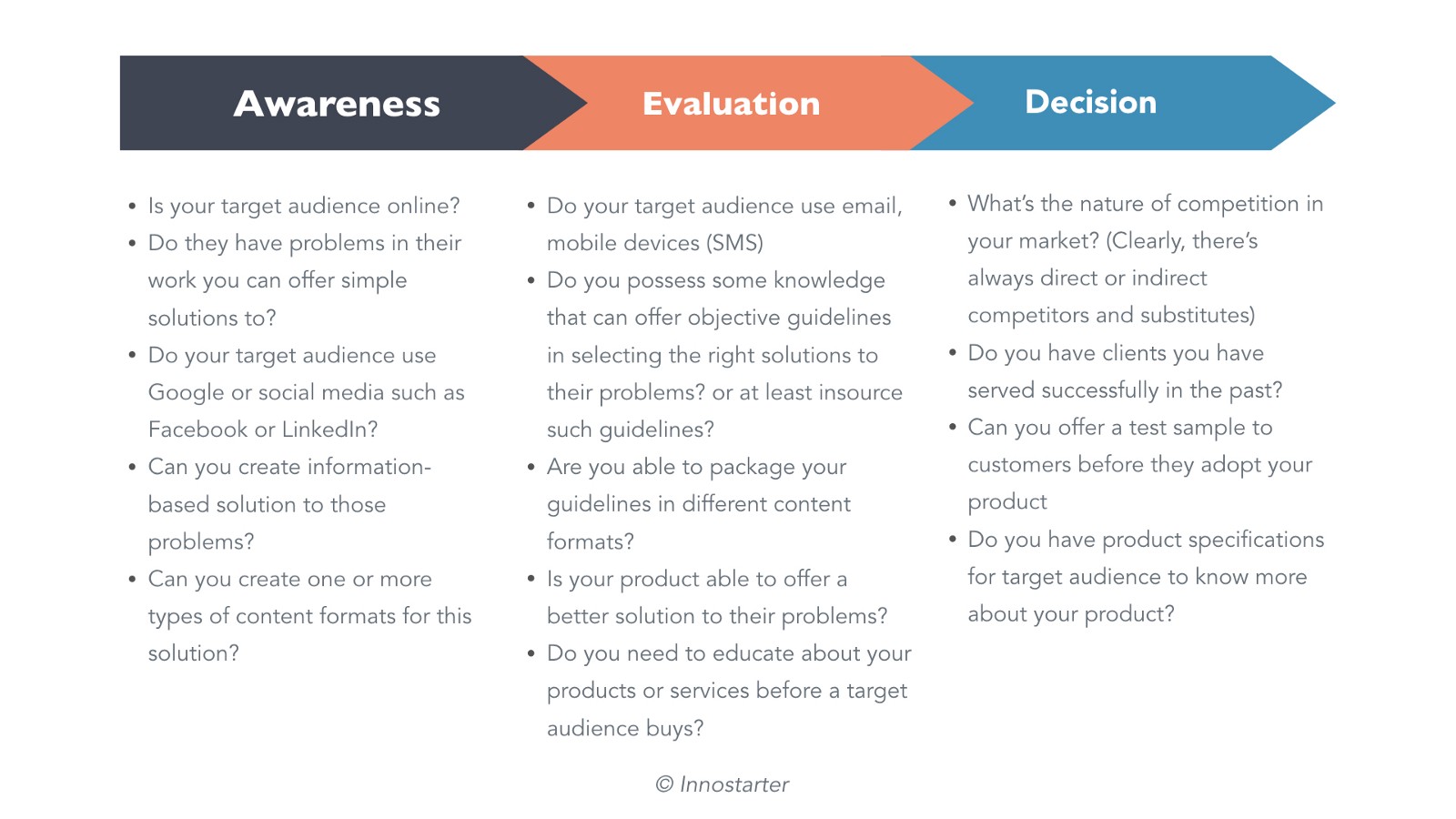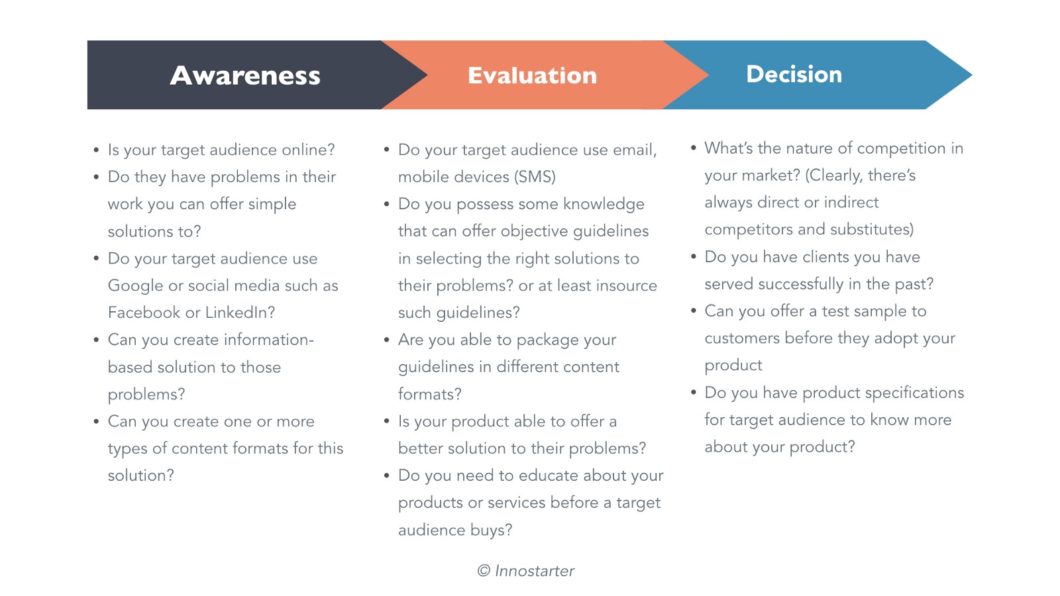
Every company is a technology and media company in the digital age we live in. If you are not leveraging technology and media to distribute your product and acquire customers, you are bound for digital distribution disruption. I am constantly working with traditional small businesses who struggle with obtaining certainty on the benefits of online content marketing. For this reason, most continue to dig up excuses why content marketing wouldn’t work in their industry rather than try.
Most popular among the reasons often cited include:
- “None of our competitors is creating content”
- “We cannot create good enough content”
- “Our products are too expensive to drive demand via online content”
Yet, a lot of traditional, large transaction businesses are reaping the benefits of content marketing.
I have, however, learnt 2 things over the last 6 months:
- The proliferation of marketing tools and channels make it harder to identify what’s effective; and
- Frameworks or guidelines to figuring out the relevance of content marketing are rare to come by.
This post addresses the second point above by offering a simple question model that can help any traditional business evaluate content opportunities at different stages of their customer journey.
First, let’s look at what online content marketing is and how your brand can benefit from it.
Ian Lurie, CEO of Portent describes “Content isn’t ‘stuff we write to rank higher’ or ‘infographics’ or ‘long-form articles. Content is anything that communicates a message to the audience. Anything.
So content marketing isn’t rocket science or something we haven’t seen before. It’s only being used in different forms, through new channels, and to speed up transaction cycles.
What are the benefits of content marketing to your business?
Content marketing is a way to drive traffic to your site and buildawareness
The days of spending millions you don’t have to get a brand known are over. Today, social media, viral marketing techniques, video, online communities etc. offer effective alternatives to driving traffic to your site and making your brand known. To use any of these techniques, you need content. When your content is remarkable, people will start talking about your content and your brand will get the right types of exposure.
Content marketing can help you build brand engagement
Before most people decide to buy a product or service, they need to have thought about you for 7 hours. Trying to call, chat for coffee or exchange emails until the 7 hours threshold is reached can consume enormous resources. Content is good way to get 7 hours with a target audience from anywhere. Think about delivering educational and entertaining content to them on a mobile, anywhere while they learn about your brand.
Content marketing is an opportunity to build Industry thought leadership
There’s an endemic confusion in almost every industry about trends, what to build, what macro or micro-factors will affect the future of an industry and how to deal with them. Online content is a good opportunity for you to step in and offer some guiding light to such confusion. 96% of B2B buyers want content with more input from industry thought leaders. This is not just applicable to new industries but also to existing ones. Content marketing is a good opportunity to educate and gather some follower-ship for your brand.
Content marketing can generate indirect customer conversion
People buy from people they love spending time with. You might be thinking how do you spend time with a prospective client through content?
The answer is, you can.
Content is a perfect way for you to get the deliberation time required before a prospective client makes a purchase decision. As a small business with limited resources, you do not have the time required to take every customer out for coffee and get them to like you. With your free flowing content on their devices on a sofa, sipping coffee, you are indirectly beckoning to a new customer.
Content marketing can improve your SEO
When people encounter problems or questions they can’t seem to be able to figure out, they run to Google. This is called zero moment of truth (ZMOT)and in order to win the customer at this moment, content is your best friend. Paid search marketing is another weapon here but it’s more expensive in the long run for any small business.
Content marketing can help with direct customer conversions
Just as you will utilize print brochures containing product pricing, customer testimonials, editorial features etc. at a trade fair to convert a customer, the same applies to online content. Whatever tactic you apply at the very end of your sales funnel to convert customers can be digitized and used online to convert customers directly.
There are obviously other ancillary benefits besides the above listed benefits.
Before starting to do anything, it is important to be crystal clear on your why — how content marketing can benefit your bottom line, or make some steps in your funnel more effective.
We spend more time thinking about answers to problem than asking questions. It is by asking the right questions that we unlock right opportunities. In design, the quality of your solutions is often tied to the quality of questions you ask. When you have understood the benefits of online content marketing, the following questions can help you figure out content opportunities at different stages of your customer journey.
Awareness stage questions: Using online content to drive traffic to your website
The lowest hanging fruits, are content that can help you drive traffic. Just as you will spend resources to get people’s attention at trade fairs and exhibitions, content is your resource to getting people to visit your website. People come to fairs because they have specific objectives or questions to seek answers to. The same applies in online content marketing. People have questions and they go to Google to confirm symptoms or directly find solutions. That’s where your brand comes in. These questions will help you identify some awareness stage opportunities for your business:
- Is your target audience online?
- Do they have problems in their work you can offer simple solutions to?
- Do your target audience use Google or social media such as Facebook or LinkedIn?
- Can you create information-based solution to those problems?
- Can you create one or more content formats for this solution?
If you answer yes to all of these questions, you can benefit from online marketing. Some content types you can start to create today to solve these problems include blog articles, white-papers, ebooks, industrial research reports, and thought leader interviews.
Note: The content you create at this stage is not about your brand or product. This is where you must be laser focused on creating content to solve your target audience’s problem.
Evaluation phase questions: Using online content to convert traffic to leads
Evaluation is sometimes called consideration. This is only a terminology and the basic questions your customers ask in this phase are the same: “Now that I know my problem, what options exist that can help solve this problem?” This is the phase at which customers seek knowledge about solutions and evaluate different options available to them. Offer guidelines in solving their problems: how to select the right vendor, what to look out for and so on. Below are some questions to ask while figuring out if you should use online content marketing at the evaluation phase:
- Do your target audience use email, mobile devices (SMS)
- Do your business possess some knowledge that can offer objective guidelines in selecting the right solutions to their problems? or at least insource such guidelines?
- Are you able to package your guidelines in different content formats?
- Is your product able to offer a better solution to their problems?
- Do you need to educate customers about your products or service before they buy?
Dig through your archives or start creating contents such as expert guidelines, podcasts, webinars and white-papers.
Decision stage: Using online content to convert leads to paying customers
For most business decision makers, this is where things begin to get more interesting. In many B2B businesses where the value of transactions are fairly large, this is where the sales team take things over. The target audience has discovered your brand, has been educated about available solutions and can see your product as one of the contending solutions. Content can help in converting leads to customers. Some content can be automated and some can be sent manually but a mix of both is ideal depending on the type of business you are in. The following questions will help you identify online content opportunities at the Decision stage for your business:
- What’s the nature of competition in your market? (Clearly, there’s always direct or indirect competitor and substitutes)
- Do you have clients you have served successfully in the past?
- Can you offer a test sample to customers before they adopt your product?
- Do you have product specifications for target audience to know more about your product?
Repackage your product pages into online brochures, convert your project references into online pdf documents and craft emails linking leads to your press coverage.
We have used these questions during opportunity workshops with a few organizations and will be sharing a case study with you in the next post.
Until then, leave a comment below or share your thoughts on unlocking online content marketing opportunities.
